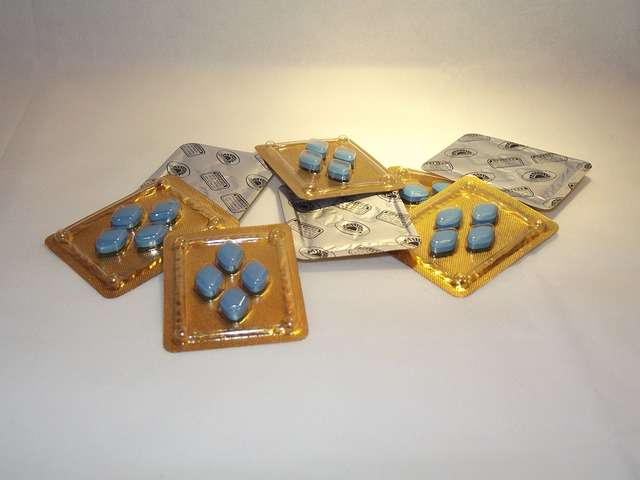A Practical Guide to Becoming a Medicine Delivery Driver Today
The healthcare industry has experienced significant growth in home delivery services, creating new opportunities for individuals seeking meaningful work in medical logistics. Medicine delivery drivers play a crucial role in ensuring patients receive their medications safely and on time, making this career path both rewarding and essential. This profession combines the flexibility of delivery work with the satisfaction of directly contributing to patient care and community health outcomes.

Essential Skills For Medicine Delivery Drivers
Successful medicine delivery drivers need a combination of technical and soft skills to excel in this field. Strong organizational abilities are fundamental, as drivers must manage multiple deliveries while maintaining detailed records and following specific protocols. Time management skills are equally important, since many medications are time-sensitive and patients depend on receiving their prescriptions according to strict schedules.
Communication skills rank among the most valuable assets for medicine delivery professionals. Drivers regularly interact with patients, healthcare providers, and pharmacy staff, often serving as the primary point of contact for medication-related questions or concerns. Additionally, attention to detail is critical when handling prescription medications, as even minor errors can have serious consequences for patient safety and regulatory compliance.
Understanding The Regulatory Requirements
Medicine delivery drivers must navigate a complex landscape of federal, state, and local regulations governing pharmaceutical transportation. The Drug Enforcement Administration (DEA) sets strict guidelines for handling controlled substances, requiring drivers to undergo background checks and maintain detailed chain-of-custody documentation. Many employers also require completion of specialized training programs covering HIPAA compliance, medication storage requirements, and emergency procedures.
State licensing requirements vary significantly across different regions, with some areas requiring specific endorsements or certifications for pharmaceutical delivery personnel. Drivers should research local regulations thoroughly and ensure they meet all necessary qualifications before beginning work in this field. Insurance requirements may also differ, particularly for drivers transporting high-value or controlled medications.
Safety Protocols For Transporting Medications
Proper medication handling begins with understanding storage requirements for different types of pharmaceuticals. Temperature-sensitive medications require specialized equipment and monitoring systems to maintain their efficacy during transport. Drivers must be trained to use refrigerated storage units, temperature monitoring devices, and backup power systems to protect medication integrity throughout the delivery process.
Security protocols are equally important, especially when transporting controlled substances or high-value medications. Many companies implement GPS tracking systems, secure storage containers, and specific delivery verification procedures to prevent theft or diversion. Drivers must also understand proper procedures for handling damaged packages, returning undelivered medications, and reporting security incidents to appropriate authorities.
Navigating Challenges In Medicine Delivery
Medicine delivery drivers frequently encounter unique challenges that require quick thinking and professional problem-solving skills. Patient scheduling conflicts, address verification issues, and weather-related delivery delays can all impact service quality and patient satisfaction. Successful drivers develop strategies for managing these situations while maintaining compliance with regulatory requirements and company policies.
Technology challenges also present ongoing obstacles, as drivers must master various software systems for route planning, inventory tracking, and customer communication. Additionally, the emotional aspects of working with patients who may be dealing with serious health conditions require empathy, professionalism, and appropriate boundary-setting skills.
Exploring Career Opportunities In Medicine Delivery
The medicine delivery sector offers diverse employment opportunities across multiple healthcare segments. Traditional retail pharmacies, specialty pharmaceutical companies, hospital systems, and dedicated medical courier services all employ delivery drivers with varying skill sets and experience levels. Some positions focus on routine prescription deliveries, while others specialize in emergency medications, clinical trial supplies, or specialized therapies requiring enhanced handling protocols.
| Provider Type | Services Offered | Typical Requirements |
|---|---|---|
| Retail Pharmacy Chains | Standard prescription delivery | Valid driver’s license, clean driving record |
| Specialty Pharmaceutical Companies | Controlled substances, specialty medications | Background check, specialized training certification |
| Hospital Systems | Emergency medications, clinical supplies | Medical facility security clearance, HIPAA training |
| Medical Courier Services | Multi-facility logistics, specimen transport | Commercial driving experience, temperature monitoring certification |
Career advancement opportunities within medicine delivery include supervisory roles, training positions, and logistics coordination responsibilities. Many professionals use medicine delivery experience as a stepping stone to other healthcare careers, leveraging their industry knowledge and regulatory familiarity to pursue opportunities in pharmacy operations, healthcare administration, or medical device sales.
Compensation and Employment Outlook
Medicine delivery driver compensation varies significantly based on location, employer type, and job responsibilities. Entry-level positions typically offer hourly wages ranging from $15 to $20 per hour, while experienced drivers with specialized certifications can earn $25 to $35 per hour or more. Many employers also provide benefits packages including health insurance, paid time off, and vehicle maintenance allowances.
The employment outlook for medicine delivery drivers remains positive, driven by aging populations, increased prescription medication usage, and growing consumer demand for convenient healthcare services. The COVID-19 pandemic accelerated adoption of medication delivery services, creating lasting changes in patient expectations and healthcare delivery models that continue to support job growth in this sector.
This article is for informational purposes only and should not be considered medical advice. Please consult a qualified healthcare professional for personalized guidance and treatment.




